Ever looked into the eyes of a fluffy kitten and wondered, 'Is it time for this little adventurer to venture out on its own?' Raising a mother cat and her tiny troupe of kittens is a heartwarming experience.
But the big question is: when should these tiny paws take their first independent steps? Is it as soon as they nibble on solid food? Or is there a deeper secret to it?
Worry not, fellow cat lover! In this article, we'll explore the perfect age for kittens to leave their mothers and explain the reasons behind it.
If you're intrigued by why the recommended age is so crucial, stay with us. We'll clarify it all in easy-to-understand terms.
And don't forget specialized advice is always beneficial in unique situations, such as with feral kittens or those separated too early.
The Best Time For Kittens To Leave Their Mother
If you're caring for a mother cat and her adorable kittens, finding them good homes becomes a top priority. But when is the right time for these little bundles of joy to leave their mom?
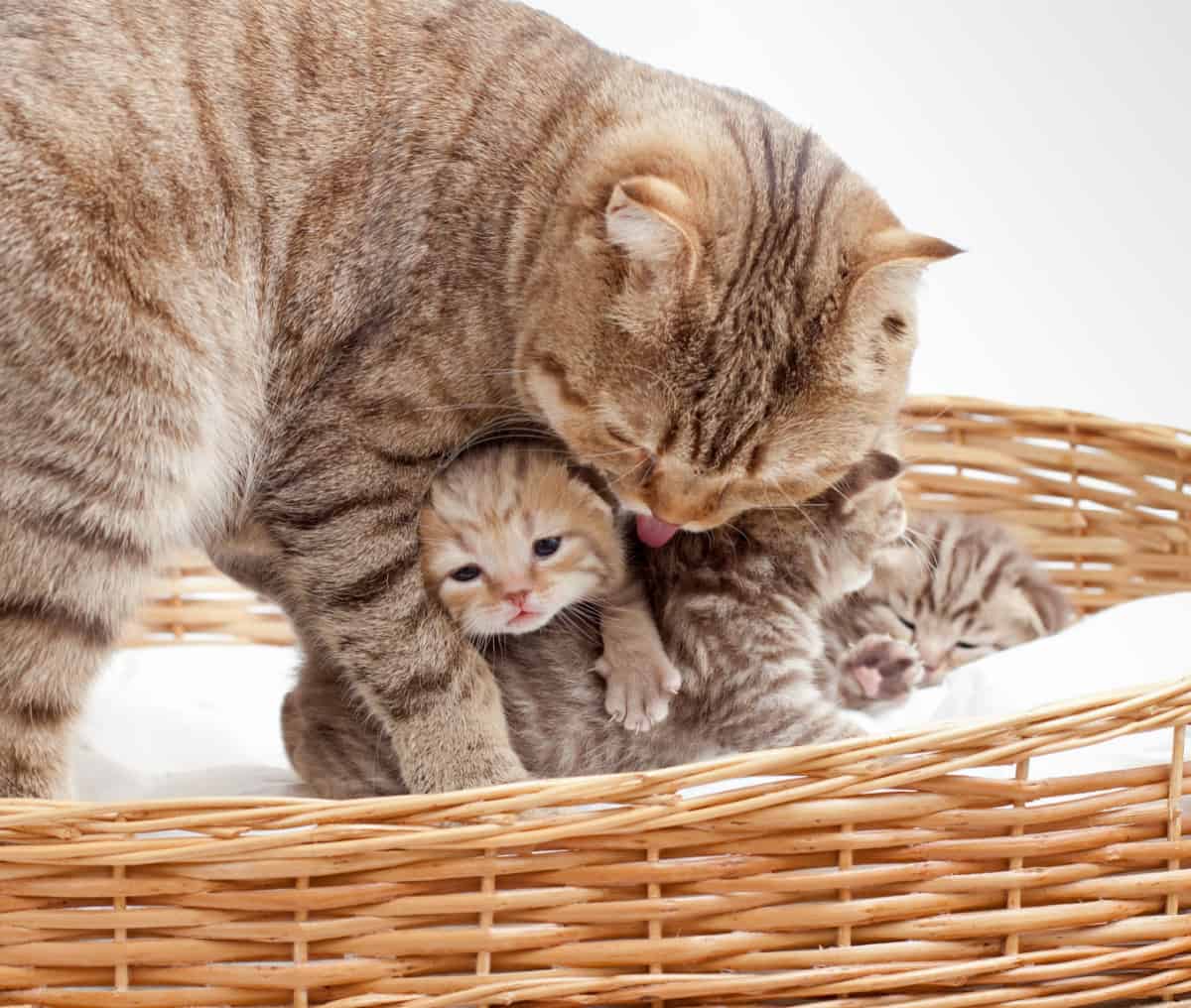
This question also applies to those eagerly looking to adopt a kitten.
We all know how irresistible those tiny furballs can be, and the waiting game can feel tough. When are they fully weaned?
Here's the scoop: The kittens should stay with their mother cat until they reach 12-16 weeks old.
It's important to note that reputable breeders, such as those recognized by the Cat Fanciers Association, never sell kittens younger than 12 weeks.
Now, let's explore why this age range is recommended and what it means for their well-being.
Why The Recommended Age Matters For Kittens Leaving Their Mother
Ever wondered why it's important to wait until a specific age before kittens can leave their mother? Let's cover the two main reasons that influence this decision:
1. Easy Adjustment To A New Home
Kittens have an easier time adjusting to a new environment and new people when they are younger. Their brains are more flexible, and it is easier for them to deal with changes.
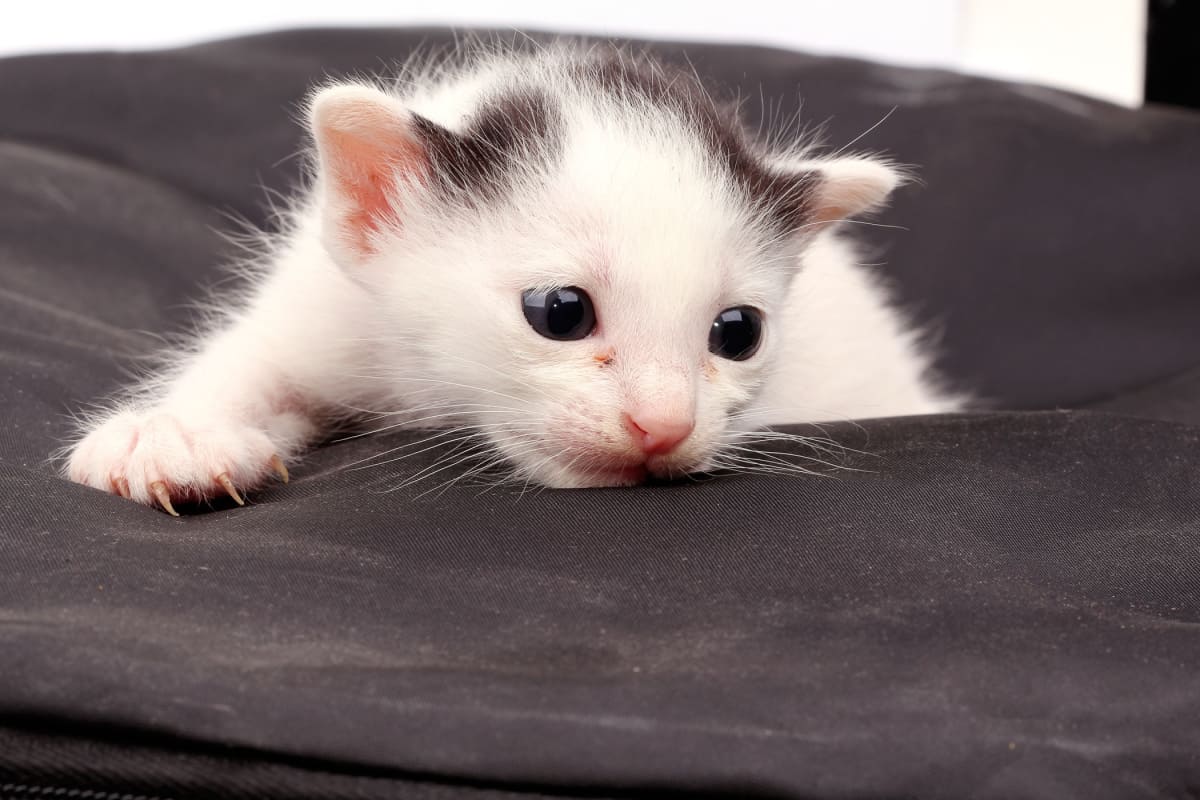
They don't have that many memories from their place of birth, and as long as they get good care and plenty of attention and love in their new home, they should do very well.
There is no specific "cutoff" point when kittens or cats can no longer adjust to a new home.
Given enough time and the right care and considering their temperament, even senior cats can become wonderful loving pets and bond with new owners.
As a rule of thumb, the younger the cat, the faster and easier the adjustment and bonding.
Have you recently adopted a cat? Read this: How To Help A New Cat Adjust To Your Home
SIGN UP FOR THECATSITE'S EMAIL UPDATES >
2. Learning "Cat Etiquette" From Mother And Siblings
Several factors determine feline behavior. Some behaviors are entirely based on instinct.
Others are taught. Some have a middle ground, involving some instinct and some learned aspects.
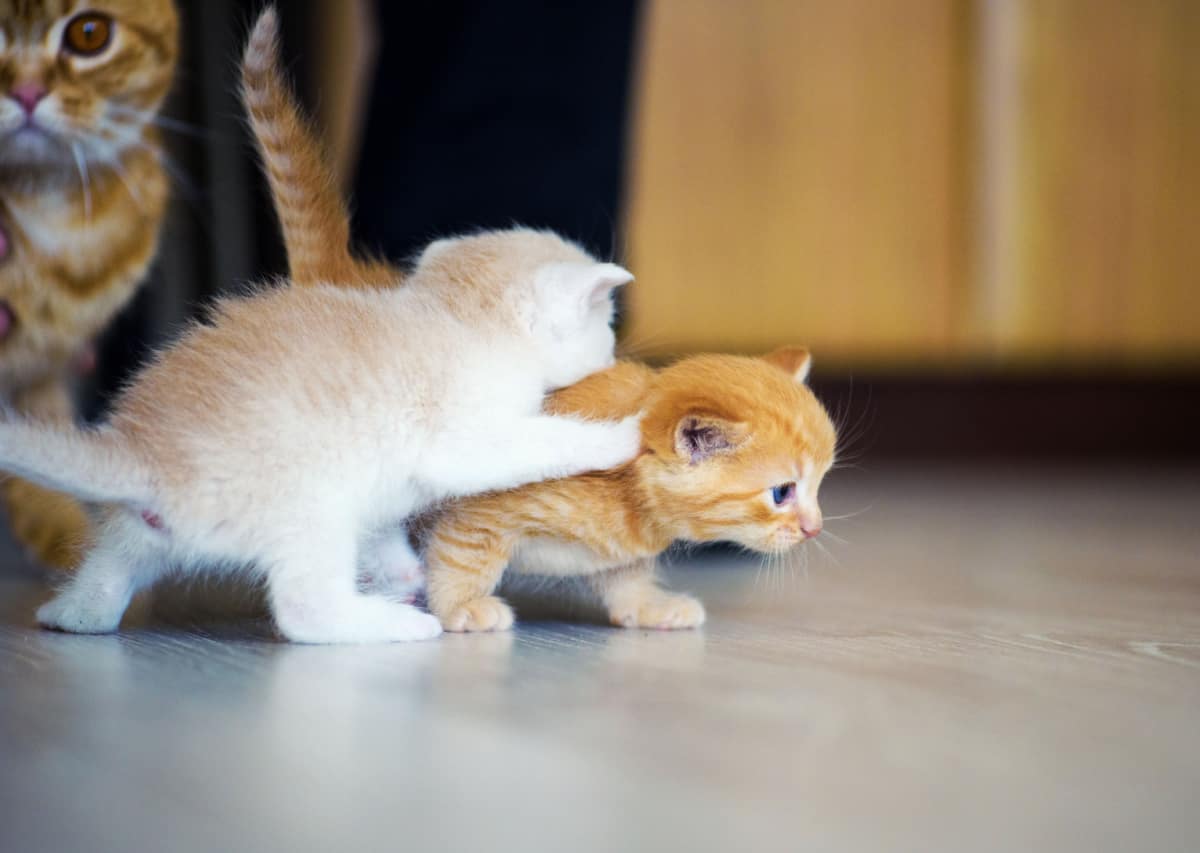
The mother cat is the best teacher for the 'Ways Of The Cat.' Some kittens will instinctually pick up on these behaviors, but others need their Mom to show them.
Also, interaction with the mother cat and their siblings helps establish their ability to connect with other cats later in their lives.
To acquire good feline manners, a cat should spend a few weeks playing and play-fighting with their siblings.
That's how they learn to control and regulate biting and scratching, for example.
So, At What Age Can Kittens Be Separated From Their Mother?
Ideally, it should be 12-16 weeks old.
That is the age span when they have already had enough time to learn how to behave themselves, yet are still young and flexible to adjust to a new home quickly.
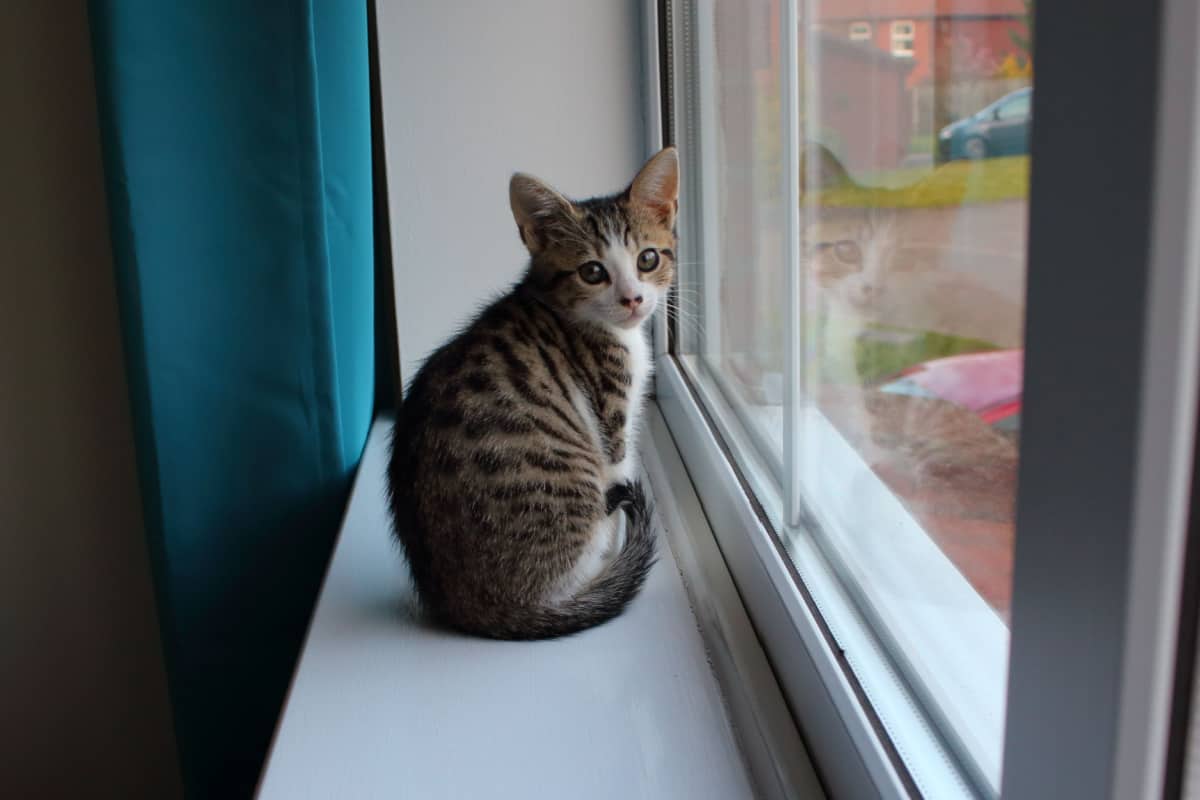
If, for any reason, you can't wait until the kittens are 12 weeks old, at the very least, try to keep them with the mother cat until they can eat solid foods, which is usually at least 8 weeks old.
If you can hold off on separating them, any additional day you give them will benefit their mental and social development.
Exceptions To The Rule: Feral Kittens And Early Separation
Are there any exceptions to the recommended age for kittens leaving their mother? Let's explore two scenarios where this rule may not apply:
1. Feral Kittens And Socialization With Humans
Feral kittens are born to wild or feral mother cats and have had no contact with humans.
In these cases, the need to socialize with humans outweighs their need to socialize with their mother and siblings.
If feral kittens stay with their mother for too long, they may develop a fear of humans. To successfully tame them, it's best to separate them at around 8 weeks of age.
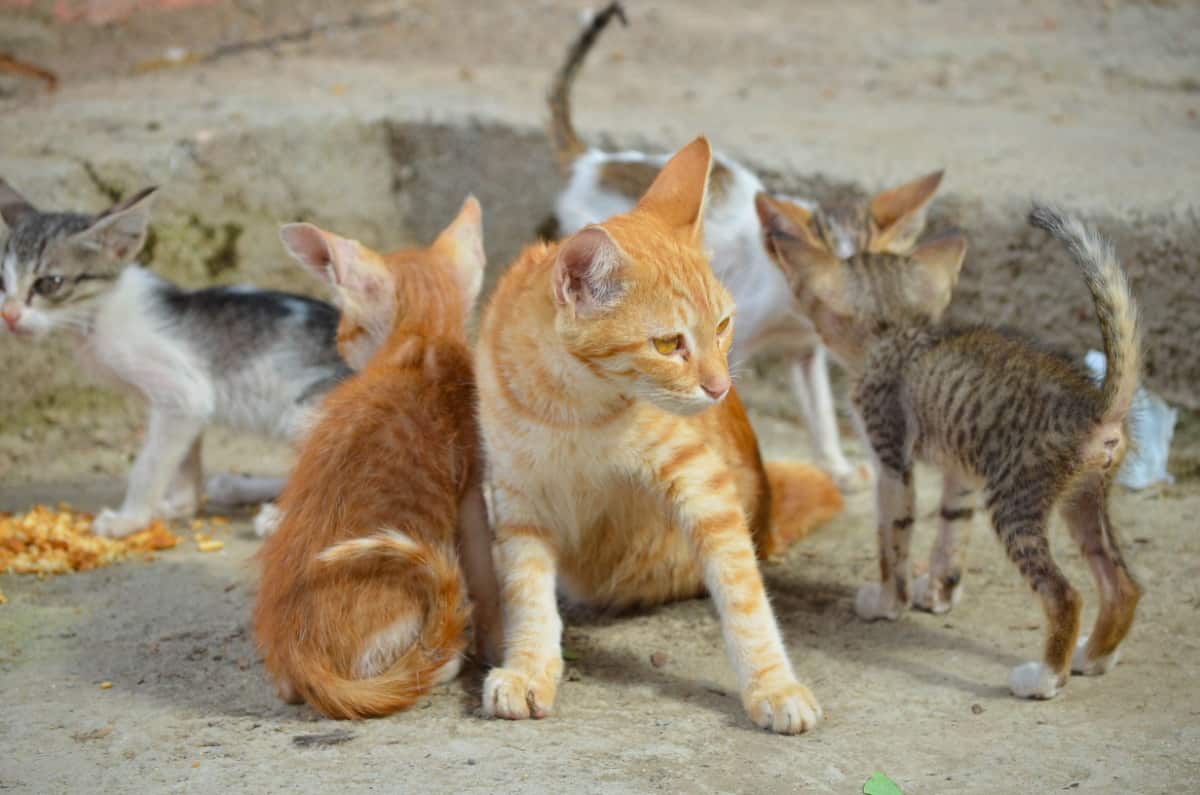
At this stage, they can already eat independently but are still young enough to overcome their fear and adjust to human interaction.
Depending on the specific situation and the ability to provide a safe environment, some experts even suggest a separation timeframe of 6-8 weeks.
If you are inexperienced with caring for feral cats, please post in our Caring For Strays & Ferals forum and ask our members for guidance and advice.
2. Kittens Separated Too Early
"Oh, no! I got my kitten when he was only 4 weeks old!"
Sometimes, kittens are adopted at an exceptionally young age. Rescued kittens can be as young as a day old, separated from their mother for unknown reasons.
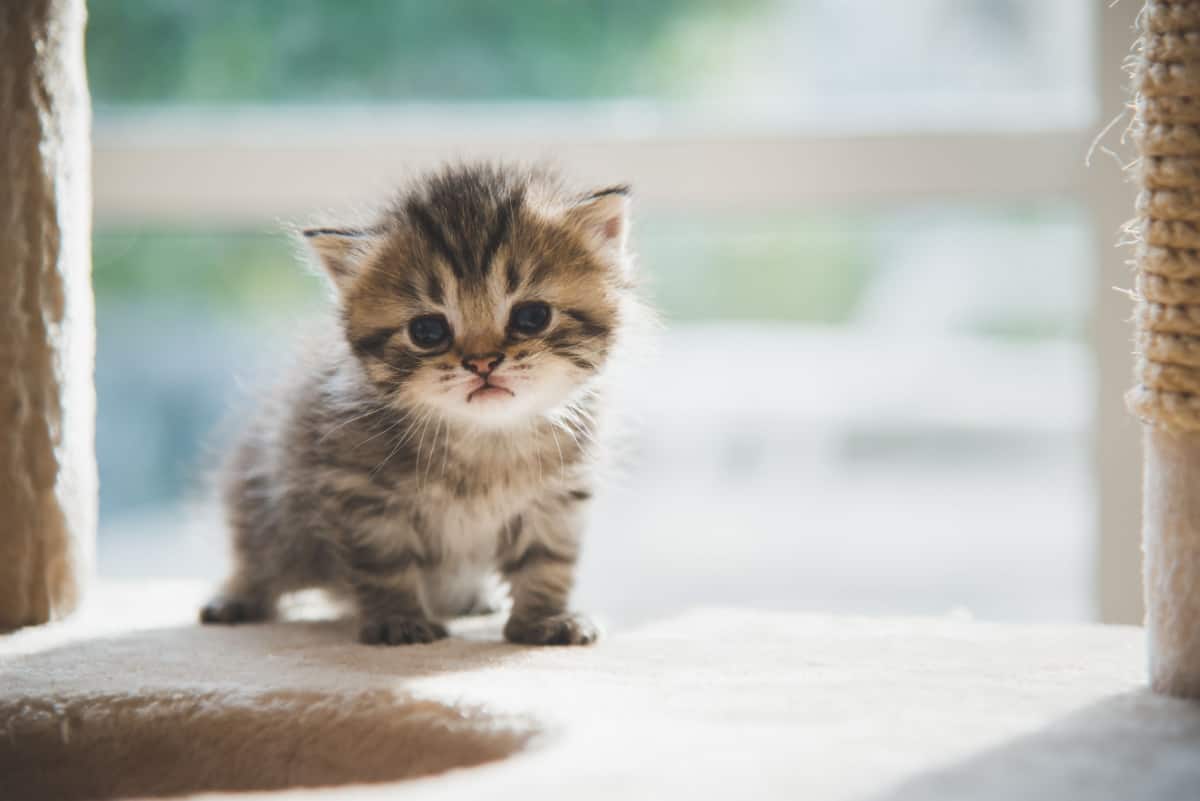
In other cases, backyard breeders or irresponsible cat owners may unknowingly separate their kittens too early due to a lack of awareness about the guidelines.
If you find yourself in possession of a kitten that was separated too early, it's important to educate yourself on proper kitten care and create an appropriate environment that provides the necessary stimulation for their development.
Remember to spay and neuter your kitten at the appropriate time.
Need more help? Post your question in the Pregnant Cat & Kittens forum.
Adoption Resources And Considerations
Taking care of a mother cat and her adorable kittens comes with the responsibility of finding them good homes. The recommended age for kittens to leave their mother is between 12-16 weeks.
This age range allows for easy adjustment to a new home and provides ample time for kittens to learn important feline behaviors from their mother and siblings.
While there may be exceptions for feral kittens and those separated too early, it is crucial to prioritize their socialization and well-being.
By understanding these considerations and seeking expert advice, you can ensure a smooth transition for the kittens and provide them with a loving and nurturing environment.
Remember, the journey of kitten ownership is rewarding; with proper care and commitment, you can create lasting bonds with your furry companions.
Love kittens? Share the wisdom! Pin the image below on social media and let fellow cat enthusiasts learn when it's time for those little furballs to step away from mom.
SIGN UP FOR THECATSITE'S EMAIL UPDATES >

You might also like:
How to Help During Kitten Season: Adopt, Don’t Shop
9 Tips That Will Help Your Kitten Adapt To A New Apartment or House
Note: We may get commissions for purchases made through links on this page.



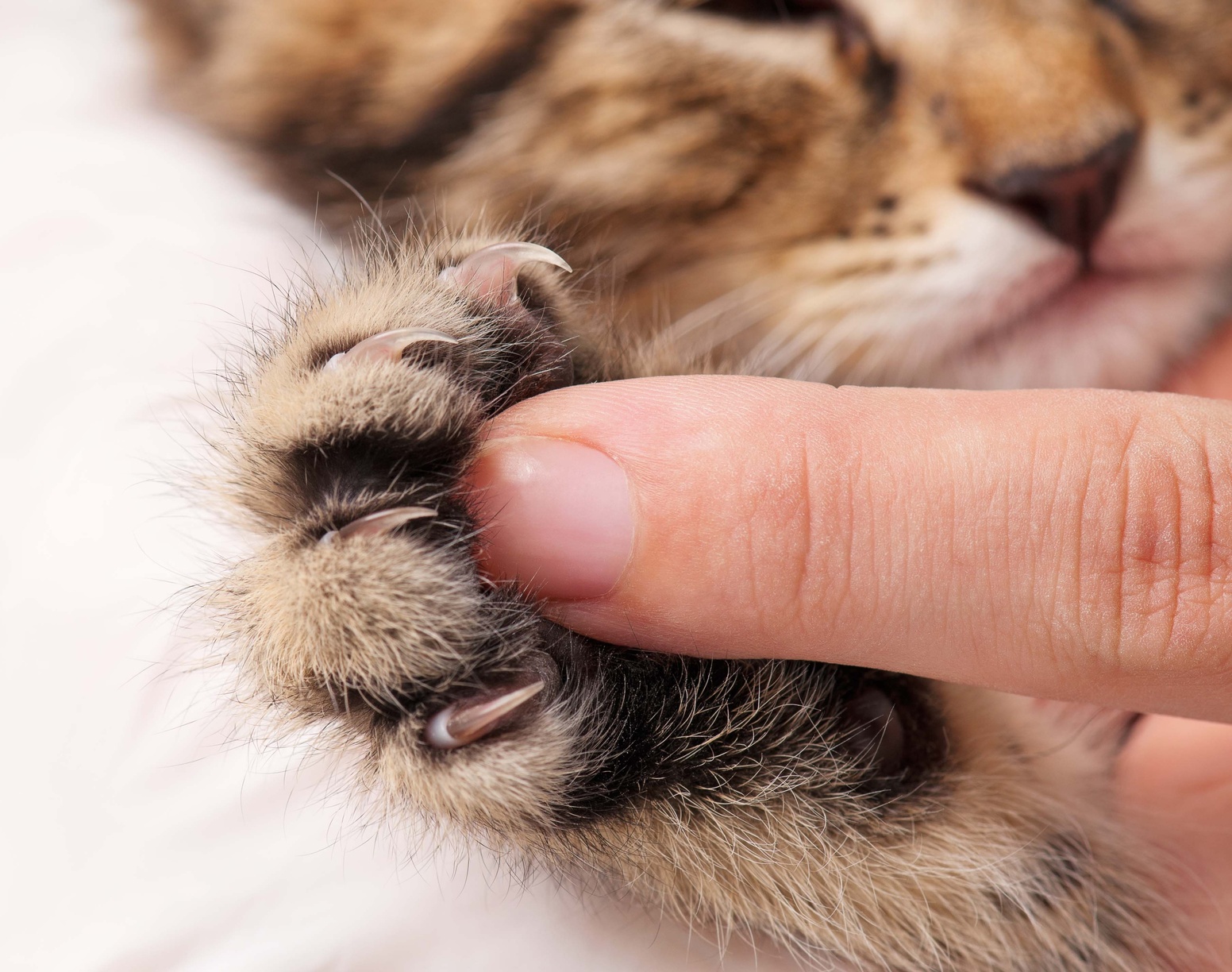
6 comments on “How Old Do Kittens Have To Be To Leave Their Mother? [Answered]”